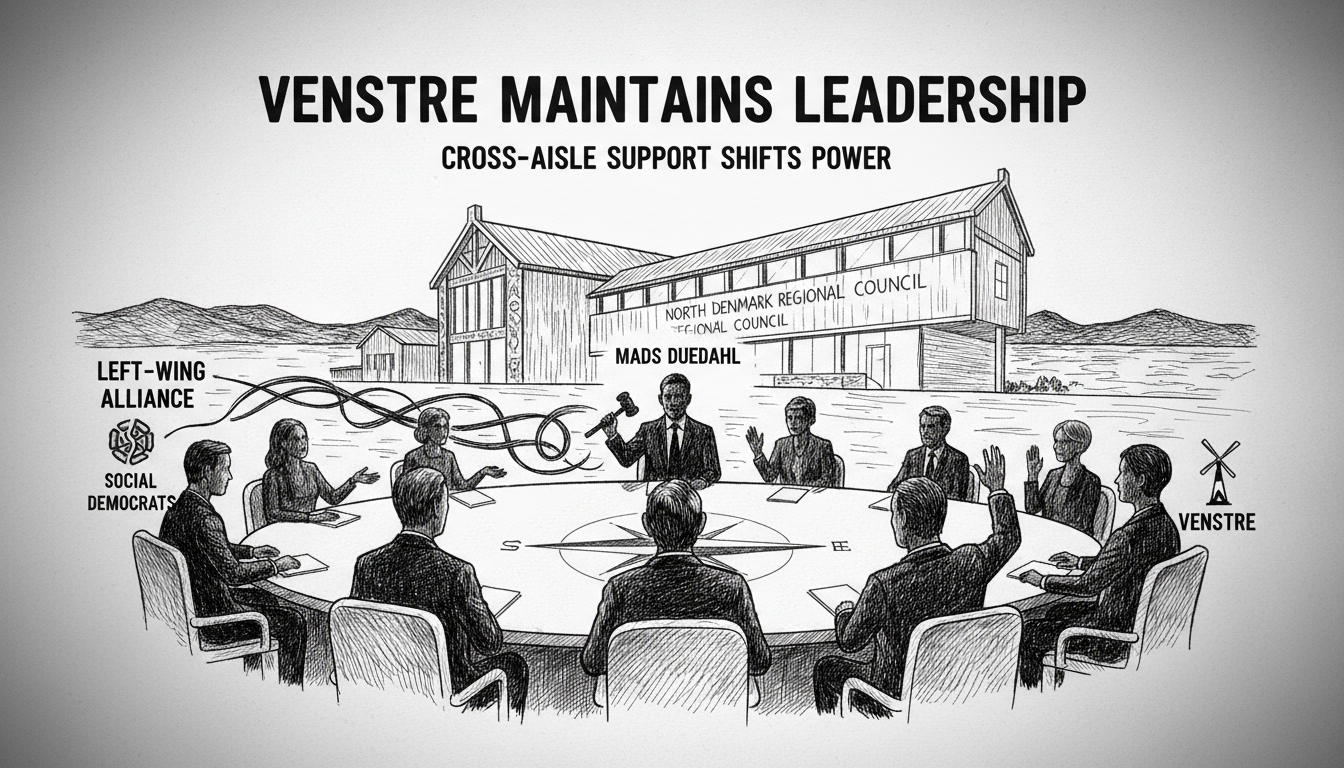The Liberal Party's Mads Duedahl will continue as council chairman in North Denmark Region. This marks his second term leading the regional administration. The decision follows recent regional elections that reshaped the political landscape.
Venstre emerged as the largest party with 27 percent of votes. The Social Democrats received 25.1 percent support. This represents a substantial 8.8 percentage point decline for the Social Democrats since the previous election. Meanwhile, Venstre gained 3.2 percentage points.
This political shift continues a trend from the last election cycle. The Social Democrats had dominated the region's leadership for 14 years under Ulla Astman. That era ended when Mads Duedahl first assumed the chairman position.
Several factors contributed to Duedahl's successful re-election. The Socialist People's Party and the Red-Green Alliance made a surprising announcement back in April. Both left-wing parties declared they would support Duedahl as their preferred candidate. This unusual cross-aisle support proved decisive.
The Social Democrats could not count on backing from their traditional allies. This left their lead candidate Arne Boelt with minimal chance of securing the leadership role. The Radical Party's lead candidate also indicated she would likely support Duedahl.
Why did left-wing parties support a liberal candidate? The move reflects strategic calculations about regional governance priorities. Some parties prioritize specific policy outcomes over strict ideological alignment. This sometimes creates unexpected political alliances in Nordic consensus-based systems.
Venstre also secured support from its traditional conservative coalition partners. The party had formed election alliances with other right-leaning parties. This broad support base ensured Duedahl's position remained secure.
The regional political picture has transformed dramatically in recent years. Social Democrats held power for decades in the former county council system. They maintained dominance even after the transition to regional governance structures.
While Venstre gained ground, the Conservative People's Party experienced setbacks. They received just over 10 percent of votes. This represents a five percentage point decline from their previous results.
Liberal Alliance performed well on the same political flank. The party increased its support among voters. This suggests some conservative voters are shifting their preferences within the right-leaning bloc.
What does this mean for North Denmark Region's future direction? The continued liberal leadership likely signals policy continuity. The region will probably maintain its current approach to healthcare, regional development, and public transportation. International residents and businesses can expect stable regional policies for the foreseeable future.
The outcome demonstrates how Danish regional politics often features pragmatic cooperation across traditional left-right divides. This reflects the consensus-oriented nature of Nordic governance systems.

